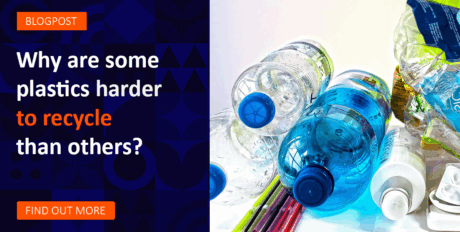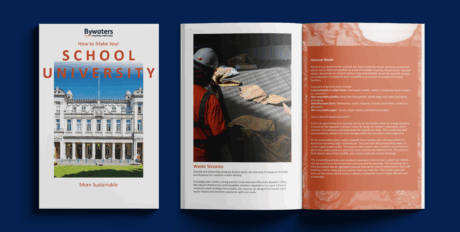Contact us today for your Free Quote
Over 55% of the UK are unsure on how to recycle properly. To shed light on this, we collaborated with CNN to highlight some of the golden rules of recycling. In CNN’s journalistic report, we dive into: wish-recycling, the importance of cleaning waste before recycling, how food contamination affects recycling, and even the infamous scrunch test. With this information at your fingertips, you’ll be empowered to make informed decisions that benefit the environment and help protect our planet for future generations. This journalistic video is packed with the golden rules of recycling.
What is wish-cycling?
Wish cycling is when we recycle with the hope of doing good, however, it can cause more bad than good. When recycling, it’s important to know what items can and cannot be recycled. If you’re unsure of how an item should be recycled, the best thing to do is put it into general waste where it won’t cause any harm. This will help to ensure that your wish to recycle has the greatest effect on the environment. The rule to follow is that if you’re not aware of how something should be recycled, it’s best to put it in general waste. This is because putting waste in the wrong bin can cause more harm than good.
Wish cycling can also lead to contamination of other recyclable materials, as items that cannot be recycled can end up mixed in with recyclables. To prevent this, it’s important to check the labels or research how to properly recycle different materials before putting them into recycling bins.
Food contaminated recycling
More than a fifth of recyclables in the UK are contaminated by food. It’s a common misconception that items with food residue or grease can be recycled. The leftover food or grease on your items can contaminate your entire waste collection. It’s important to clean all materials before recycling.
Can mixed materials be recycled?
Items with a merger of materials should be separated before recycling. A common example would be cardboard with sellotape on it. Understandably many believe that items that seem inconsequential attached to their recycling won’t impact the process. Through our collaboration video with CNN, we break down the impact this has on your recycling.
Take your first step
The phrase “reduce, reuse, and recycle” has become a popular mantra for environmentalists and waste-conscious consumers all over the world. While many of us aim to reduce the amount of waste we produce and find ways to reuse items instead of throwing them away, it’s equally important to focus on the third “R”: recycling. CNN recently visited our material recycling facility to film us discussing the importance of recycling . Sadly, it’s been reported that over 50% of recyclable materials end up in landfills, but with the information in this blog, we’re hoping to reduce that. Contact us today, to see how your organisation can take its first step towards a greener tomorrow.
More posts:
Valentine’s Day: History, Tradition, and Its Modern Impact
This post traces the evolution of Valentine’s Day from ancient Roman rituals to a global commercial event. It highlights the holiday’s hidden environmental impact and offers a guide to celebrating sustainably through “Circular Romance” and waste reduction.
Read morePlastic Recycling: Why Are Some Types Harder to Process Than Others?
Some plastics recycle easily, while others are difficult or impractical to process at scale. This article explains why material type, packaging design, contamination and recycling infrastructure all play a role, and what businesses can do to improve plastic recycling outcomes in the UK.
Read moreThe Ultimate Guide For a Sustainable School and University
Download The Ultimate Guide For a Sustainable School or University. Get the roadmap to cut costs, reduce your carbon footprint, and boost your ESG profile with 5 core pillars.
Read more




